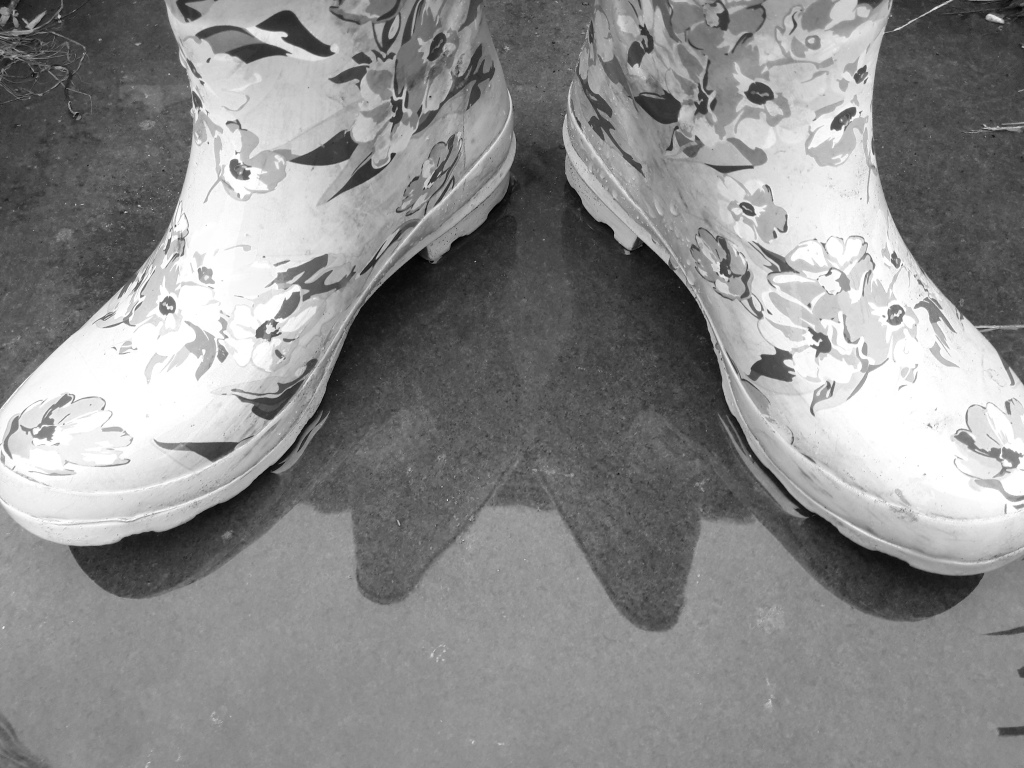Hello,
It’s a wet Monday here. The forecast is for rain all day long. The puddles are forming in my garden and my walking shoes are glaring at me, daring me to test their water-proof-ness.
Instead of sloshing through puddles, I’ll take a look at the word history of precipitation. My first association with the word is as an alternative term for rain, but of course it covers all types of atmospheric moisture deposited on the earth’s surface including snow, dew, frost, hail, etc.
This idea of precipitation being a form of water falling from the sky dates to the 1600s but the word itself is older. It joined English in the late 1400s and was originally spelled as precipitacioun. I love those old spellings, don’t you?
It arrived with two meanings. One was the casting down of rebellious angels from heaven. Lucifer was precipitated from heaven, for example. The other was used in alchemy where precipitation was the separation of a solid from a solution. My eldest is now studying chemistry at university and he would know all about that. I hope he does this in a slow careful manner rather than with undue haste.
Precipitation was borrowed into English from Old French and before that came from Latin praecipitationem (falling headlong or being hasty) from praeceps (steep, headlong, headfirst). Praeceps is formed by joining prae (before) with caput (head). Put the two together and you definitely get the idea of going head-first with some degree of speed, as an angel might when falling from a great height.
Until next time happy reading, writing, and wordfooling,
Grace (@Wordfoolery)
p.s. Want more Wordfoolery? Subscribe to the monthly newsletter “Wordfoolery Whispers”. Don’t forget to click on the confirmation email, which might hide in your spam folder.











